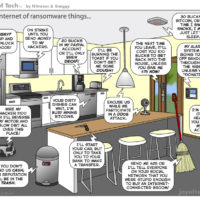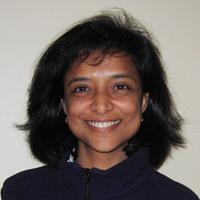CCC @ AAAS 2017- Health in Your Pocket: Diagnosing and Treating Disease with Smartphones

Shwetak Patel, Elizabeth Mynatt, and Gregory Hager
The following blog post is by CCC Director Ann Drobnis with contributions from Gregory Hager, Member of the CCC Healthcare task force and Director of the Malone Center for Engineering in Healthcare at Johns Hopkins University.
The Annual Meeting of the American Association for the Advancement of Science (AAAS) is an opportunity for scientists across the spectrum to come together and communicate the importance and excitement of science to the general public. This year’s meeting, which took place in Boston on February 16-20, 2017, had the theme of Serving Science Through Science Policy, a natural fit for the Computing Community Consortium (CCC)[1]. This blog post is the first in a series discussing the panels and presentations highlighting the contributions of computing to science and society.
The focus of this post is healthcare. Building on a recent workshop on Discovery and Innovation in Smart and Pervasive Health, three CCC members, Elizabeth Mynatt, Shwetak Patel, and Gregory Hager were asked to provide a Press Briefing entitled “Health in Your Pocket: Diagnosing and Treating Disease with Smartphones,” one of the topics from the workshop.
Patel kicked off the briefing with a discussion of health-related SmartPhone applications that his lab at the University of Washington has developed with his clinical collaborators, some of which are currently in process for FDA clearance. Among these are applications to do spirometry, osteoporosis screening, and to determine hemoglobin concentrations for managing chronic diseases and screening. Mynatt discussed the work that her lab is doing on mobile device applications that can augment the care of a chronically ill patient and described how it relates to the care of breast cancer patients working with a patient navigator. Hager concluded the presentation with an overview of the mobile health space, noting that it is “a bit of a wild west” as surveys of the more than 165,000 health apps available in the marketplace show that relatively few can be directly tied to scientific studies supporting their construction.
Representatives from the press had a variety of questions, ranging from inquiring about payment for these apps if they are used for diagnostic purposes (like SpiroSmart) to the problems of putting more medical information in the hands of people without connecting them to a provider, particularly in developing countries where there is a huge shortage of healthcare workers.
The CCC has a task force on Healthcare which follows these and other issues. Additional resources, including the media coverage from the AAAS Meeting, can be found on the Healthcare task force website.
Future CCC @ AAAS 2017 posts will look at a panel discussion on What Happens When Everyday Objects Become Internet Devices: A Science Policy Agenda, a series of FlashTalks on The Technology of the Future, and a panel on Assistive and Rehabilitative Robots.
[1] The mission of Computing Research Association’s Computing Community Consortium (CCC) is to catalyze the computing research community and enable the pursuit of innovative, high-impact research. CCC conducts activities that strengthens the research community, articulates compelling research visions, and aligns those visions with pressing national and global challenges. The CCC communicates the importance of those visions to policymakers, government and industry stakeholders, the public, and the research community itself.









